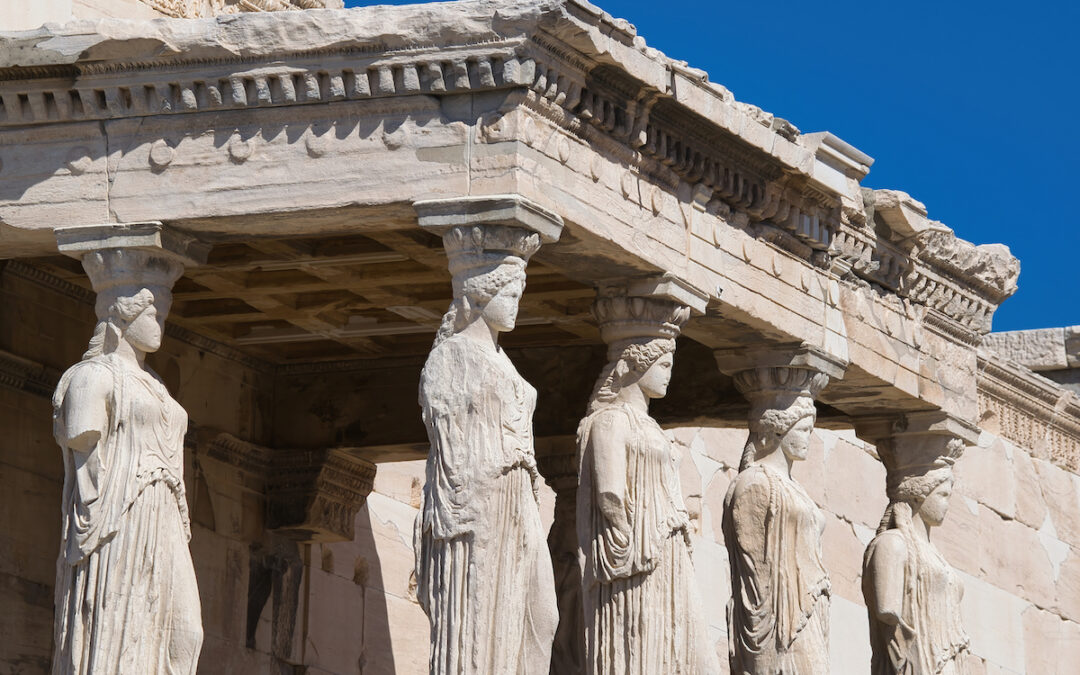By Assistant Dean of Students Nate Jenkins
There are two ways of getting home; and one of them is to stay there. The other is to walk round the whole world till we come back to the same place. – G.K. Chesterton, The Everlasting Man
Lest anyone think that our current cultural tug-of-war about the value of the Western tradition began with Trump and the Era of Bad Feelings, they should remember that it was way back in 1987 that Jesse Jackson campaigned for president by marching down Palm Drive at Stanford University with 500 students in tow, shouting, “Hey hey! Ho ho! Western Civ has got to go!” The crowd that gathered was demanding a more diverse introductory humanities program and, lo and behold, they got what they wanted.
But of course Jackson was only one in a long line of critics of Western culture by the twilight of the Reagan years. Those detractors really started in earnest after World War II, as the postmodern turn compelled philosophers, writers, and artists to discuss themes of identity, racism, and a search for goodness in humanity in the wake of the most destructive era in human history. They were all equally anxious that the Western tradition had significant blind spots which created major problems for democratic societies, as evidenced in periods like the Civil Rights era in America and May 68 in France.
Now comes classical education in the last twenty years with its aim to rehabilitate Western values and perhaps save the West (or at least America) in the process. Classical schools are growing at a market rate of 4.8% per year and are projected to have nearly 1.5 million students by 2035. It’s no surprise, then, that the critics of the Western project would be alarmed and seek to slow classical education’s growth by charging it with the same crimes they lay at the feet of all Western cultures: colonialism, racism, patriarchy, homophobia, etc.
Of course, we don’t need to feel any consternation about being tried in the radical Left’s courts of Critical Theory. They have shown by their actions that they are not interested in dialogue; theirs is a spirit of judgment and destruction as we have seen time and time again. Not that we in classical ed are of necessity aligned with the political right, either, but in a world where many healthy traditions are being rapidly destroyed in a kind of cultural blitzkrieg, classical education is a deeply conservative project. As Buckley put it, “The conservative is someone who stands athwart history yelling, ‘Stop!’” and classical ed in one sense is a kind of emergency brake on the runaway train that is public education.
But as the old saying goes, if the shoe fits we should wear it. The West is not without its sins, many of them glaring and hideous. But they are seldom the sins as defined by the political left and almost always the sins against the Law of God as revealed in the Bible. They are sins of murder, avarice, theft, adultery, idolatry, and corruption. They are the iniquities we have been committing as a human race since Cain slew Abel, and we continue to commit them apart from the grace and mercy of God intervening in our lives. We can acknowledge a particular Western characteristic to those sins without saying that the characteristic is somehow worse than the sin itself; Portuguese slave-trading is not inherently worse than Arab slave-trading just because it is Portuguese.
It is at this inflection point where classical, Christian education can shine in a way that classical education alone is dulled: as classical educators and students we look to the Western tradition to study both its achievements and failures, but as Christians we also study its transformation.
Now some might say that the West is synonymous with Christianity, and it is. But depending on which dates we use, Western civilization began at least 500 years before the birth of Christ and it took a millennia more for Christianity to reach all of Europe. There is a lot of West that is pre-Christian and a lot of West that was slow to Christianize. Europe before the advent of the faith was a far crueler and darker place than it is today. It was plagued with slavery, barbarism, superstition, and idolatry to degrees that we cannot comprehend until we begin to study it or are exposed to those things in non-Western cultures today. We have a word for the West without Christ – pagan – and we use it pejoratively to describe those societies which groped in the darkness until the Light dawned and the Day appeared.
This week in my seventh grade class we looked at the Twelve Tables, which formed the basis for Roman law starting in the early Republic (ca. 460 BC). We compared many of the laws of Rome with the Mosaic law. Perhaps surprisingly, the Mosaic law – condemned in our culture today as backward, barbaric, and uncultured – was more progressive than the Twelve Tables, which came 1000 years later. Moses gave women property rights. Rome denied them. Moses protected the disabled. Rome destroyed them. Moses commanded no interest on loans. Rome allowed nearly 10%.
The ancient world despised those who were elevated by the Christian faith. As historian Tom Holland reminds us, “The heroes of the Iliad, favourites of the gods, golden and predatory, had scorned the weak and downtrodden. So too, for all the honour that Julian [the Apostate] paid them, had philosophers. The starving deserved no sympathy. Beggars were best rounded up and deported. Pity risked undermining a wise man’s self-control. Only fellow citizens of good character who, through no fault of their own, had fallen on evil days might conceivably merit assistance.” 1
By studying the West, we not only see its triumphs, but also its failures, and so in looking – if we have eyes to see – we can glimpse how truly transformative the Gospel is and how much the advent of the Kingdom of God has changed the world for the better. We not only see the West with new eyes, but also our faith with new eyes, as well. And though Christianity is neither Western nor Eastern, but belongs to the entire world – both past, present, and future – we understand that when the Kingdom of God entered the world, it chiefly traveled on Roman roads and spoke the Greek language.
For all its shortcomings, there is no need to say Western Civ has got to go. It is one story among many stories in the world, that is true. It is expanding every year to include civilizations and peoples that have historically been excluded and apart from it, and we are right to add those stories to the Western canon. But the Western story is still worth centering (to use a term of the Left) in our schools for in it is the beginning of the story of the dispelling of darkness, not perhaps into the brightness of the full day which remains to be seen, but into a new morning which has dawned in the world, an era for which the Romans gave us two words: Anno Domini, the year of our Lord.
1. Holland, Tom. Dominion: How the Christian Revolution Remade the World. Basic Books, 2019.



Such intelligent historical truths.